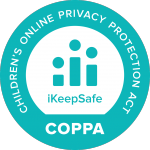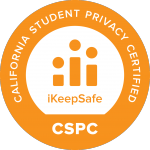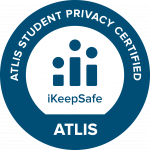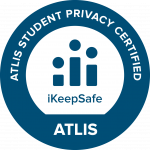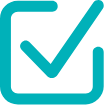The importance of kids learning coding and computer science in school is catching on worldwide. They ensure kids are ready for a future where these skills will be more and more vital.
But what about grown-ups?
Learning basic coding and programming concepts can enrich our lives, too! Whether it’s opening up career options, practicing critical thinking, or just being in-the-know about how the accelerated adoption of technology is affecting the next generation, coding offers valuable tools for grown-ups as well.
Hearing the word “coding” may sound frightening, but anyone can learn how to do it! Just think back to the days of Myspace. If you had a Myspace profile, more than likely you were looking up different codes to paste into that little box to make your profile stand out. Whether that was a new theme, a song, or something else unique to your page. We were coding and not even realizing it!
Myspace may be long gone, and not very relevant for our grown-up lives today, but that’s how easy it was to learn cause-and-effect and debugging skills that make up basic coding concepts.
So, why learn to code now? If we aren’t engineers, do we even need this skill? Absolutely. Here’s why:
Coding can be useful in jobs you might not expect
When you first think of the words “coding” and “programming” your mind probably goes straight to highly technical jobs. It’s true that learning to code is essential for those types of careers, but you can also apply coding knowledge to other jobs.
Growth manager, Jake Lane, says, “While I’m primarily a marketer, having technical knowledge is one of the biggest assets I can provide my team. Being able to make a change to the code base helps free up our developers to focus on the more important stuff and reduces development lag time.”
Coding ability gives new perspective to problem solving
Coding, in its most basic terms, is really just assigning a computer a task to do based on the logical guidelines you’ve outlined. Highly complex tasks are essentially a collection of smaller operations once you break them down. This methodical and logic-heavy approach to problem solving can be a great skill for figuring out problems beyond a coding challenge.
Hilary Bird, senior developer at Get CenturyLink, agrees with this sentiment, saying that learning to code has benefited her personal and professional life by encouraging her to take a step back and approach situations from a logical perspective. “I can break problems down into small, separate parts and figure out how each is affecting the other,” she explains. “This helps me decide what area of the problem to focus on first.”
Learning to code offers career flexibility
Learning to code can help open up new areas of opportunity in your career and ultimately make you a more flexible candidate in a rapidly-shifting digital economy.
Even if your job doesn’t require you to have a deep understanding of coding or programming languages, it still helps because you’ll likely need to interact with another person who does. Learning to code, even as a hobby, can give you a common reference point and better understanding of those who tackle some of the more complex programming and coding roles out there.
Our society is changing quickly with the innovative new ways technology is being integrated into every field. Learning to code can equip you with the skills you may need later on, as your job evolves and adapts to technological advances.
Learning to code can be a fun bonding opportunity for families
Most likely, your kids are learning how to code in school. Also, they are most likely already better at it than you. Why not make it a family effort to learn something new next year? You’ll not only learn to code, but you’ll have fun learning with the help of your family by your side. You could even host a family coding challenge night once a week! It’s not very often that you get to learn new and practical things alongside your kids! Check out some of our favorite Ozobot challenges, here.
There are many ways in which learning to code as an adult is beneficial, whether it is for personal or professional growth. So, when you are pondering what changes you want to make for yourself in 2020, keep learning to code at the top of your list!




